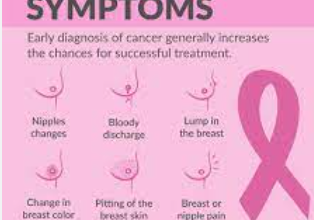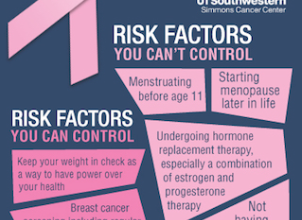Health A Holistic Approach to Well-being

Outline
- Introduction
- Brief overview of the importance of health.
- Setting the tone for the article.
- Understanding Holistic Health
- Defining holistic health.
- Discussing the interconnectedness of physical, mental, and emotional well-being.
- The Role of Nutrition in Health
- Emphasizing the impact of a balanced diet.
- Highlighting key nutrients for optimal health.
- Importance of Regular Exercise
- Exploring the benefits of physical activity.
- Providing practical tips for incorporating exercise into daily routines.
- Mental Health Awareness
- Discussing the stigma around mental health.
- Providing insights on promoting mental well-being.
- Quality Sleep for Overall Well-being
- Linking sleep to overall health.
- Offering tips for improving sleep quality.

- Managing Stress Effectively
- Identifying sources of stress.
- Strategies for stress management.
- Hydration and its Impact on Health
- Discussing the significance of staying hydrated.
- Tips for maintaining adequate hydration levels.
- Social Connections and Health
- Highlighting the role of social interactions.
- Encouraging meaningful connections.
- Preventive Healthcare Measures
- Advocating for regular health check-ups.
- Discussing preventive measures for common health issues.
- The Influence of Environment on Health
- Examining the impact of the environment on well-being.
- Tips for creating a health-friendly environment.
- Incorporating Mindfulness Practices
- Introducing mindfulness and its benefits.
- Simple mindfulness exercises for better health.
- The Dangers of Sedentary Lifestyle
- Addressing the risks associated with a sedentary lifestyle.
- Offering alternatives for a more active daily routine.
- Promoting Healthy Habits in Children
- Discussing the importance of instilling good habits from a young age.
- Practical ways to encourage healthy habits in children.
- Conclusion
- Summarizing key points.
- Reinforcing the importance of holistic health.
Health: A Holistic Approach to Well-being
Introduction
In the fast-paced world we live in, health often takes a backseat in our priorities. However, maintaining good health is crucial for a fulfilling and joyful life. In this article, we will explore the various aspects of health, emphasizing a holistic approach that encompasses physical, mental, and emotional well-being.
Understanding Holistic Health
Holistic health goes beyond the absence of illness; it focuses on the interconnectedness of mind, body, and spirit. It recognizes that optimal health is achieved when all aspects of an individual are in balance.
The Role of Nutrition in Health
A well-balanced diet is the foundation of good health. Nutrient-rich foods provide the body with the necessary elements for proper functioning, supporting energy levels, and bolstering the immune system.
Importance of Regular Exercise
Physical activity is not just about maintaining a certain physique; it plays a crucial role in overall health. Regular exercise improves cardiovascular health, enhances mood, and contributes to better sleep.
Mental Health Awareness
Despite growing awareness, there is still a stigma surrounding mental health. It’s essential to recognize the importance of mental well-being and actively work towards reducing the stigma associated with seeking help.
Quality Sleep for Overall Well-being
The significance of a good night’s sleep cannot be overstated. Quality sleep is essential for cognitive function, emotional well-being, and overall physical health. Simple changes in bedtime routines can significantly improve sleep quality.
Managing Stress Effectively
Stress is an inevitable part of life, but how we manage it can impact our health. Identifying sources of stress and implementing effective coping strategies, such as mindfulness and relaxation techniques, is crucial.
Hydration and its Impact on Health
Staying hydrated is often overlooked but is a fundamental aspect of health. Water is essential for digestion, circulation, and temperature regulation. Adequate hydration supports overall well-being.
Social Connections and Health
Humans are social beings, and meaningful connections contribute to mental and emotional health. Nurturing relationships with friends and family is vital for a fulfilling life.
Preventive Healthcare Measures
Regular health check-ups are essential for early detection of potential health issues. Prevention is key, and taking proactive measures can significantly reduce the risk of developing certain conditions.
The Influence of Environment on Health
Our physical environment affects our health. From air quality to the layout of our living spaces, making conscious choices to create a health-friendly environment is crucial.
Incorporating Mindfulness Practices
Mindfulness practices, such as meditation and deep breathing, have proven benefits for mental and emotional well-being. Integrating these practices into daily life can enhance overall health.
The Dangers of Sedentary Lifestyle
With modern technology, sedentary lifestyles have become more prevalent, leading to various health issues. Finding ways to incorporate movement into our daily routines is vital for mitigating the risks associated with a sedentary lifestyle.
Promoting Healthy Habits in Children
Instilling healthy habits in children sets the foundation for a lifetime of well-being. Encouraging outdoor play, providing nutritious meals, and fostering a positive attitude towards health contribute to a healthy upbringing.
Conclusion
In conclusion, health is not merely the absence of illness but a state of complete well-being. Taking a holistic approach, addressing physical, mental, and emotional aspects, is key to achieving optimal health. By making conscious choices in nutrition, exercise, and mental well-being, we can create a life that is vibrant and fulfilling.
FAQs
- How can I improve my sleep quality?
- Try establishing a consistent sleep schedule and creating a relaxing bedtime routine.
- What are some stress management techniques I can use daily?
- Incorporate activities like deep breathing, meditation, or engaging in hobbies to manage stress effectively.
- Why is a balanced diet important for overall health?
- A balanced diet provides essential nutrients that support various bodily functions, contributing to overall well-being.
- How can I encourage my children to adopt healthy habits?
- Lead by example, involve them in meal preparation, and prioritize outdoor activities to instill healthy habits.
- What role does physical activity play in mental health?
- Regular exercise releases endorphins, reducing stress and anxiety while improving mood and cognitive function.



